The Year of the Discovery
(El año del descubrimiento)
Luis López Carrasco / Spain, Switzerland / 2020 / 200 min
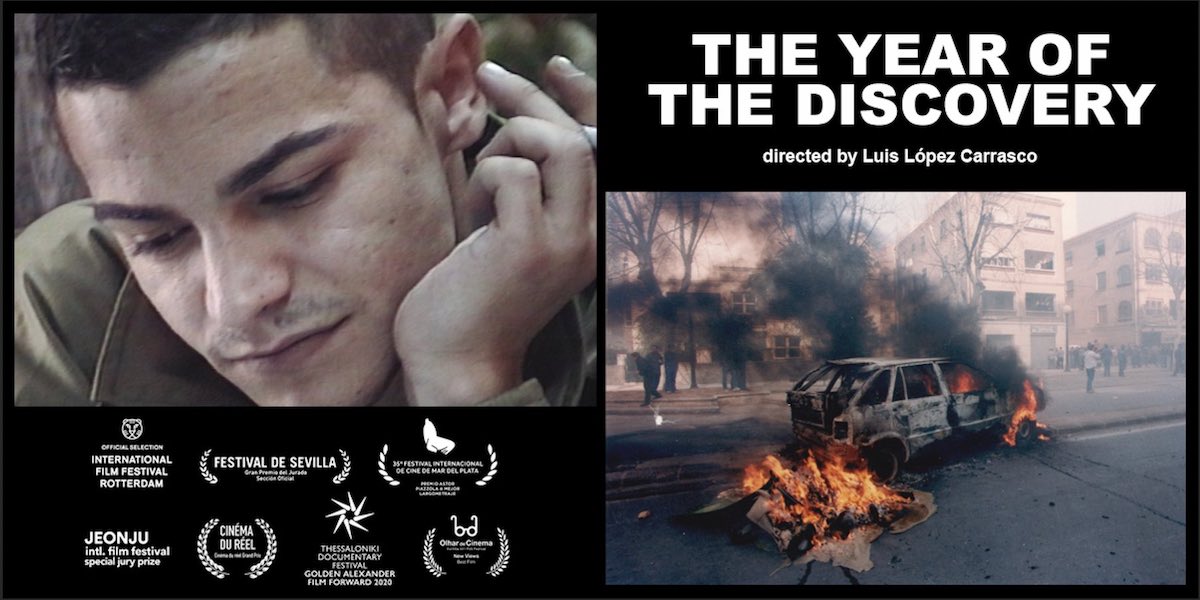
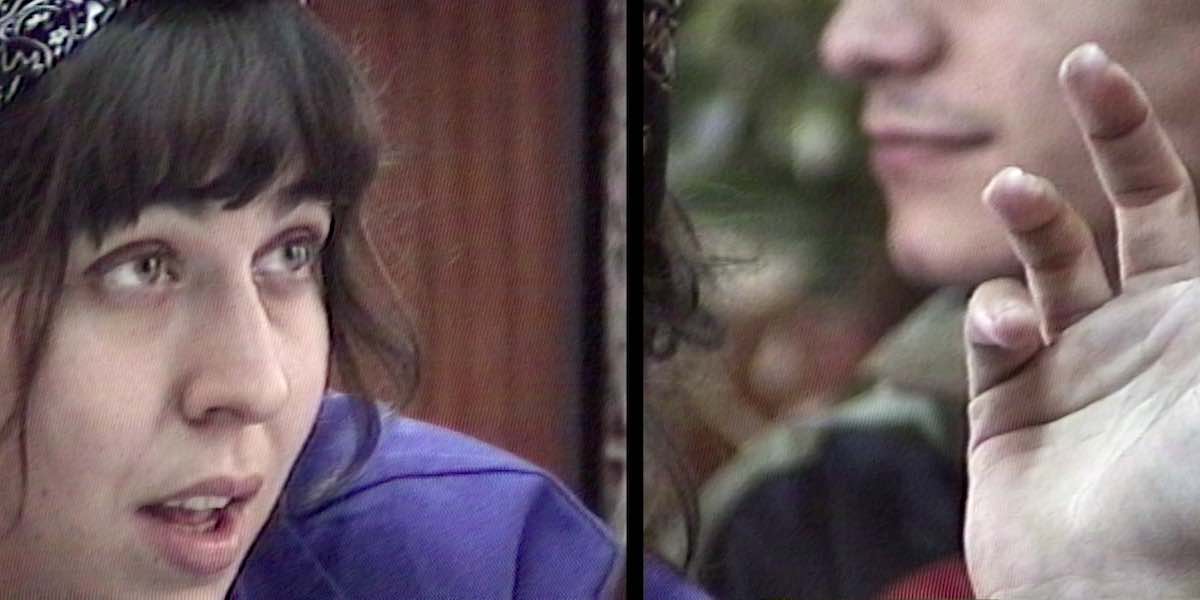
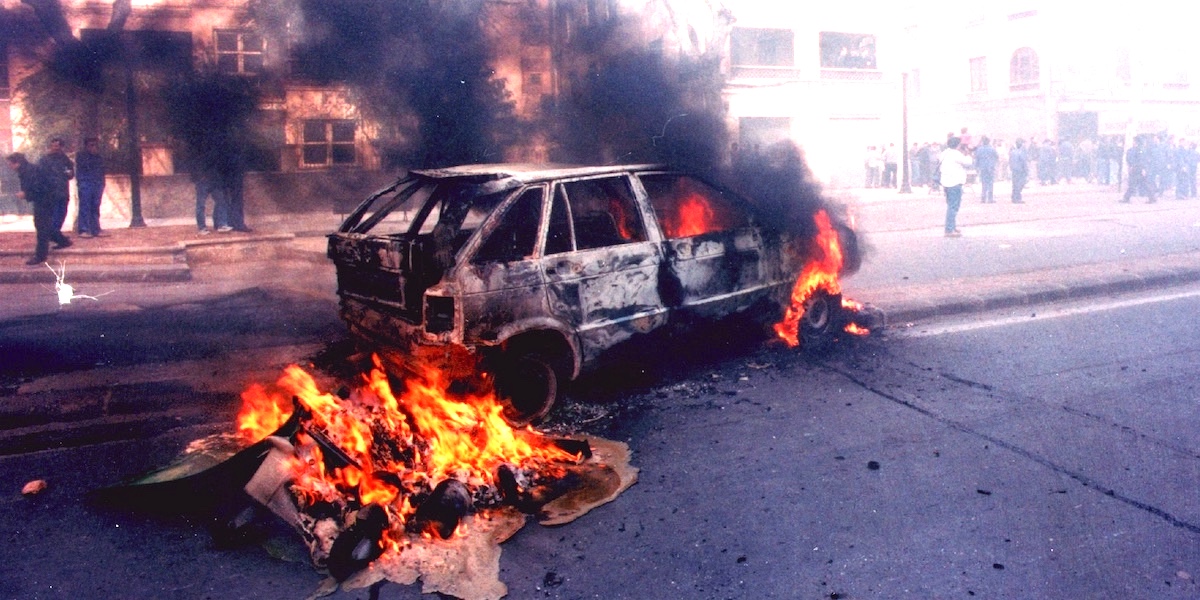
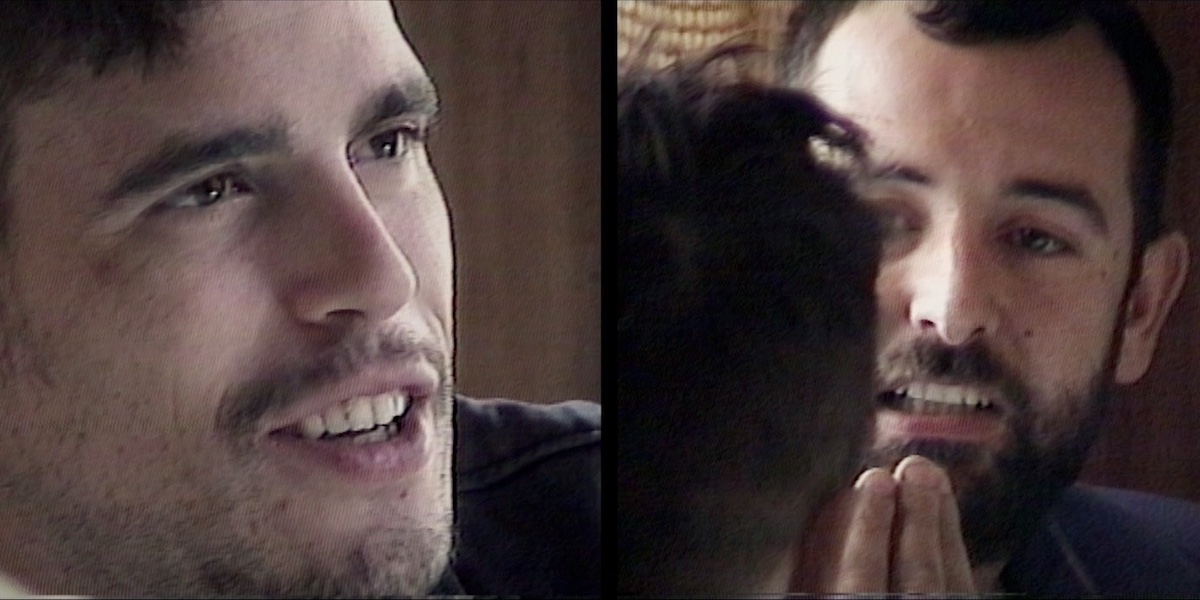
Goya Awards®
Best Documentary, Best EditingMar de Plata Int'l Film Festival
Best FeatureCinema du Réel Doc Film Festival
Grand PrizeSeville European Film Festival
Grand PrizeRotterdam Int'l Film Festival
L'Alternativa Film Festival
Best Feature
Pricing
Related Films
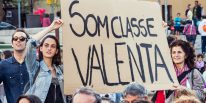 The Brave Class: The Power of Political Speech(CLASE VALIENTE: EL PODER DE LAS PALABRAS)Victor Alonso BerbelWhat hides beneath a political speech? Can the world be changed with words? The Brave Class reveals the methods of political language in our way of ...
The Brave Class: The Power of Political Speech(CLASE VALIENTE: EL PODER DE LAS PALABRAS)Victor Alonso BerbelWhat hides beneath a political speech? Can the world be changed with words? The Brave Class reveals the methods of political language in our way of ...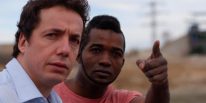 On This Side of the World(A este lado del mundo)David TruebaOn This Side of the Wall is a deep and global look at migrations, borders, and the most insurmountable walls erected by mankind. Alberto, a dull and ...
On This Side of the World(A este lado del mundo)David TruebaOn This Side of the Wall is a deep and global look at migrations, borders, and the most insurmountable walls erected by mankind. Alberto, a dull and ...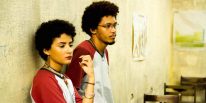 A Bruddah’s Mind(Cabeça de Nêgo)Déo CardosoBased on real events, this political drama fuses Brazilian history with international anti-racist movements. Saulo, a black introverted student and fan ...
A Bruddah’s Mind(Cabeça de Nêgo)Déo CardosoBased on real events, this political drama fuses Brazilian history with international anti-racist movements. Saulo, a black introverted student and fan ...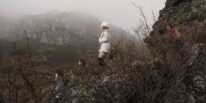 Sediments(Sedimientos)Adrián SilvestreSix trans women travel to a small town in León where they will explore unusual landscapes, as well as the ins and outs of their own personalities. ...
Sediments(Sedimientos)Adrián SilvestreSix trans women travel to a small town in León where they will explore unusual landscapes, as well as the ins and outs of their own personalities. ...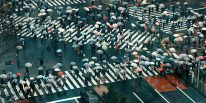 Delicate Balance(Frágil equilibrio)Guillermo García LópezCentered around an extensive interview with Jose “Pepe” Mujica, the former President of Uruguay who gained notoriety on the world stage as a rare ...
Delicate Balance(Frágil equilibrio)Guillermo García LópezCentered around an extensive interview with Jose “Pepe” Mujica, the former President of Uruguay who gained notoriety on the world stage as a rare ...Synopsis
Spanish with English subtitles
Winner of two GOYA AWARDS®, The Year of the Discovery explores the contradictions lived in Spain in 1992. In this pivotal year, Spain celebrated both the Olympic Games in Barcelona and the quincentenary of Columbus’s arrival in the Americas in Sevilla, presenting the country as an emerging new democracy to the international community. In the meantime, workers in Cartagena protested a threat to industrial jobs with an uprising that culminated in the burning of the regional parliament.
Shot on Hi-8 videotape entirely within a smoky bar in the city of Cartagena, through one-on-one interviews, complex split-screen compositions, and subtle manipulations of time, Luis López Carrasco’s documentary offers a vivid counternarrative to the official history; one in which industrial labor’s toll on the body and the brutal fracturing of communities testifies against a national mythology of progress.
Related Subjects
About the Director
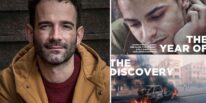
Available for Q&As, Masterclasses, and workshops upon request, in English or Spanish.
Book a Screen+Talk
Mar del Plata International Film Festival, Distrital Film Festival, Lima Independiente Film Festival, CGAI, and Arteleku dedicated a monographic focus on Los Hijos’ work. European Film Festival Paliç awarded him the Underground Spirit Award for their career. Their first feature-length film, Los Materiales, was awarded the Jean Vigo Prize for Best Direction (Punto de Vista International Film Festival 2010) and International Jury’s Special Mention (FiD Marseille 2010).
López Carrasco’s first solo film, El Futuro, premiered at the Locarno International Film Festival. It screened in over fifty international festivals, and was awarded at BAFICI, Lima Independiente, Uruguay Winter Festival, and IBAFF.
His short film Aliens premiered at the Locarno Festival and was awarded at Doxufest Kosovo, FIDOCS, Cinespagna Toulouse, and FICA. His second feature-length film, The Year of the Discovery (El año del descubrimiento, 2020), had its world premiere at IFFR Rotterdam. The film received the Goya Award for Best Documentary and Best Editing.
López Carrasco is also a producer of True Love (Ion de Sosa, 2011) and Sueñan los androides, (Ion de Sosa, 2014), which premiered at Berlinale. He is the executive producer of Nuestra amiga la luna (Velasco Broca, 2016).
López Carrasco is the co-author of the book La aritmética de la creación. Entrevistas con productores del cine español contemporaneo. He published Europa, a short narrative framed by science fiction, in 2014. The White Desert (El desierto blanco) is his first novel. He currently works as an assistant professor at the Universidad de Castilla-La Mancha.
Press
“What emerges is a prodigy: the artifact, not only documentary, more surprising and even essential that Spanish cinematography has produced in a long time.” – Luis Martínez, El Mundo
“The testimonies of Cartagena people who lived through the struggles of 1992, experiencing police brutality along with disillusionment with the neoliberal policies of the supposedly "socialist" government, are articulate, vivid and attractive.” – Neil Young, The Hollywood Reporter
Notes on the Film
“I was born in the city of Murcia although I have lived in Madrid since I was eighteen. A large part of my childhood was spent visiting my paternal grandparents, who had ended up living in Cartagena for employment reasons. Cartagena is a military port which has rivalled the capital for a thousand years. When I was seven years old, we spent a day in class colouring a stencil of the recently inaugurated brand-new regional parliament. Its eclectic architecture was striking for the time and all the children enjoyed painting the stencil with garish colours. It was new and attractive and represented the maturity of Murcia as a Community deserving a Statute of Autonomy. The effigy of the façade was stamped on my mind while I was colouring it in. This is why I especially remember the day it was burned.
I was eleven at the time and, like the rest of the country, I was overcome with enthusiasm for the events of 1992, the year in which Spain was presented as a brand new modern country before the international community. I remember seeing the inauguration of the Olympic Games and feeling part of a future world economic power, as the news readers were saying in these last years of crisis, the image of a parliament burning came back to mind now that the Congress of Deputies has been surrounded by fencing and police for months.
When I asked my father, or mother, or my family in Murcia how they experienced the burning of our region’s parliament in the neighbouring city – the city where my grandparents lived – they looked at me questioningly. What was I talking about exactly? What year did I say this happened? Was I sure I did not invent this? For me, the burning of the autonomous parliament was the other side of 1992.”
– Luis López Carrasco, Director